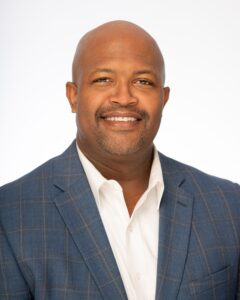by Leon T. Andrews, Jr., President and CEO, Equal Measure
When Equal Measure set out to create a new strategic plan three years ago, we knew we needed a bold vision—where race does not predict life outcomes—to chart our path forward as a learning organization committed to amplifying the voices of communities of color, especially Black, Indigenous, and Latine communities.
In the first 100 days of the Trump administration, we have seen the dismantling of progress toward racial equity. Deep and sudden cuts to federal funding are weakening the institutions and initiatives that make our communities safer, healthier, and more vibrant. From direct attacks on diversity, equity, and inclusion programs of all kinds to ongoing threats to funding for education, science, and mental and physical health at all levels, we can expect more challenges to our most cherished American values and efforts to achieve a more equitable nation.
The challenges are sobering, but they will not shake Equal Measure’s resolve for a more equitable and just society. Through the organization’s deep relationships in fields such as public health, postsecondary education, and economic mobility, I have had the privilege of hearing from leaders at nonprofits, foundations, and local governments. The conversations have surfaced three themes about meeting this moment of uncertainty as a social sector.
Theme 1: Preparation and advocacy go hand in hand.
With federal policies and funding in flux, leaders are responding through risk assessments, contingency planning, and financial modeling. These preparations support organizations’ operations and equity-focused work, but leaders also stressed the importance of advocating for—and defending—the social progress we have made as a sector.
Theme 2: Leaders and movements need more investment.
Equipping leaders of color and the organizations they lead emerged as a priority from my conversations with partners across the country. Beyond sustaining individual groups, they also spoke about strengthening cross-sector partnerships to create more resilient and strategic alliances for social justice.
Theme 3: Short-term flexibility is key, but long-term change is the focus.
Despite the concerns that many leaders have shared over the past several months, they continue to emphasize a long-term view of systems transformation. A focus on outcomes and tangible results for communities continues to galvanize the sector’s path forward.
Learning, Measurement, Evaluation, and Strategy as Tools for Action
As organizations prepare, advocate, and focus on long-term change, we have reorganized Equal Measure’s services under an equity-focused learning, measurement, evaluation, and strategy approach to clarify how we support our clients and partners.
Our work has not changed. Equal Measure’s intersectional approach—using an equity-focused lens that centers racial equity and the many identities that people hold in relationship to power—continues to ground our services. Rather, using the language of Learning, Measurement, Evaluation, and Strategy more clearly lays out the extended ways we can intentionally use our learning engagements to equip clients and partners for action. We see our four service areas as steps toward systems transformation:
- Learning: Helping clients and partners identify the problems they want to solve.
- Measurement: Co-creating measures and methods with clients to observe and understand the progress of their investments.
- Evaluation: Assessing what works for clients, grantees, partners, and other stakeholders to advance equity and achieve positive goals.
- Strategy: Bringing together insights from learning, measurement, and evaluation as levers for sustainable and actionable change.
The path ahead is not without challenges, yet the conversations I have had with leaders leave me hopeful. Their resolve to sustain equity-centered work, despite political headwinds, is a testament to the sector’s resilience. Equal Measure’s decades of experience, combined with our renewed focus on learning, measurement, evaluation, and strategy, position us as stalwart partners to the sector—standing ready to continue the work toward greater social justice.

